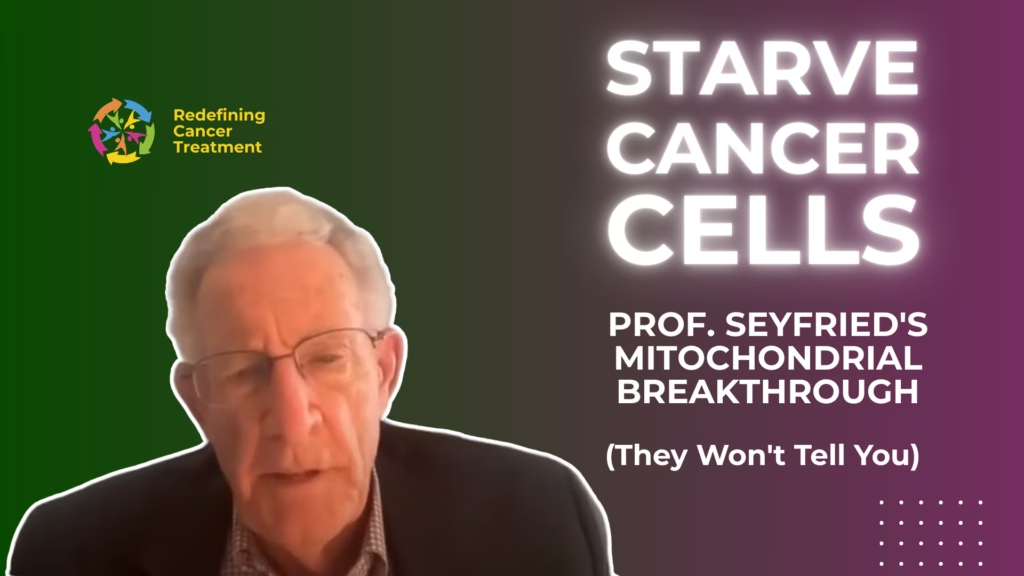
Thomas Seyfried Warns Against Unauthorised Use of His Work in Cancer-Keto Promotions
Dr. Thomas Seyfried Issues Warning: “Stick to My Published Work”⚠️ The cancer researcher clarifies he has no ties to “keto for cancer”
In this video, Professor Seyfried discusses a revolutionary approach to understanding and managing cancer, challenging the conventional view that cancer is primarily a genetic disease. Instead, he argues that cancer is fundamentally a metabolic disorder, specifically a mitochondrial dysfunction leading to a reliance on fermentation for energy.
Professor Thomas Seyfried
Historically, the geocentric model of the universe was challenged by the Copernican revolution, leading to a profound shift in understanding. Similarly, Prof Seyfried suggests that our understanding of cancer needs a similar paradigm shift. The current focus on genetic mutations overlooks the critical role of mitochondrial energy metabolism in cancer development.
Cancer cells exhibit mitochondrial dysfunction, which leads to an inability to efficiently produce energy through oxidative phosphorylation. Instead, they rely on fermentation, a less efficient process that uses glucose and glutamine as primary fuels. This metabolic shift is not merely a consequence of genetic mutations but a primary cause of cancer’s uncontrolled growth.
While cancer cells do have genetic mutations, these mutations are secondary effects rather than primary causes. Germline mutations, which are inherited, are risk factors but not the primary drivers of cancer. Prof Seyfried notes that major germline risk factors, such as the p53 mutation, impair mitochondrial energy efficiency, further supporting the metabolic theory.
Metabolic therapy aims to exploit cancer cells’ dependence on fermentation by restricting glucose and glutamine availability. This can be achieved through dietary changes, such as nutritional ketosis, and targeted drugs. Prof Seyfried highlights the potential of drugs like Don, which, when used in conjunction with metabolic therapy, can selectively target cancer cells without the toxicity associated with traditional treatments.
Despite the promising potential of metabolic therapy, there are significant barriers to its adoption. The field is dominated by the genetic theory of cancer, and there is a lack of understanding and support for metabolic approaches among clinicians and pharmaceutical companies. Prof Seyfried emphasises the need for education and clinical trials to validate metabolic therapy’s effectiveness.
Prof Seyfried’s work challenges the conventional wisdom on cancer, offering a metabolic perspective that could revolutionise treatment strategies. By focusing on the metabolic vulnerabilities of cancer cells, we may develop more effective and less toxic therapies. However, overcoming the entrenched views in the medical and pharmaceutical industries will require continued research and advocacy.

Dr. Thomas Seyfried Issues Warning: “Stick to My Published Work”⚠️ The cancer researcher clarifies he has no ties to “keto for cancer”

Professor Thomas Seyfried’s groundbreaking metabolic therapy framework reveals how targeting cancer’s energy vulnerabilities—through ketogenic diets and repurposed drugs like Fenbendazole—offers

In this paradigm-shifting analysis of cancer biology, Professor Thomas Seyfried (Boston College) talks about starving cancer cells and dismantles the

The video explores how metabolic therapy can revolutionise cancer treatment by targeting cancer cells’ reliance on glucose and glutamine for energy. It